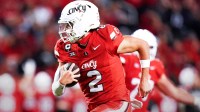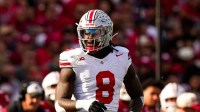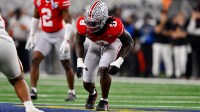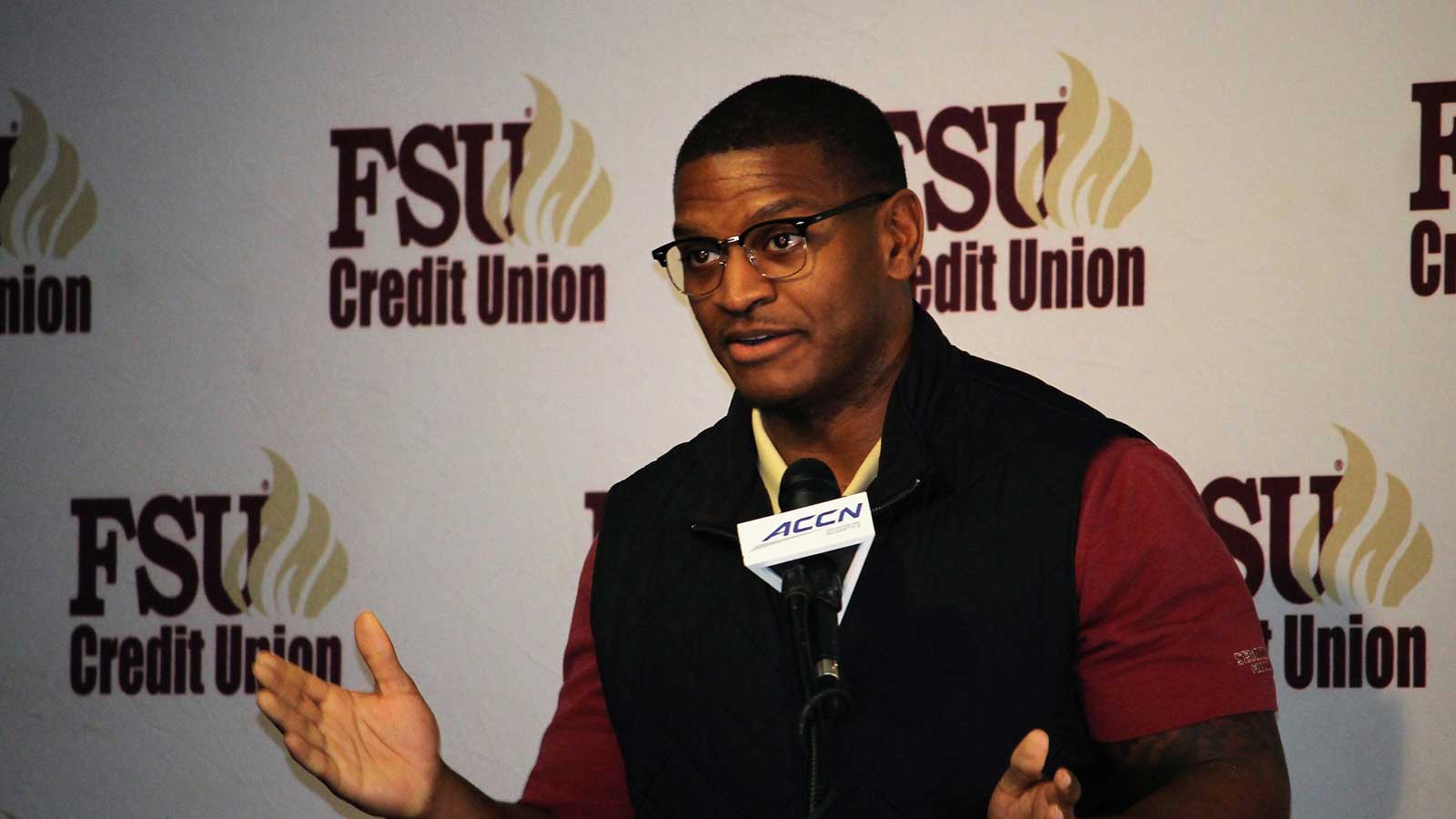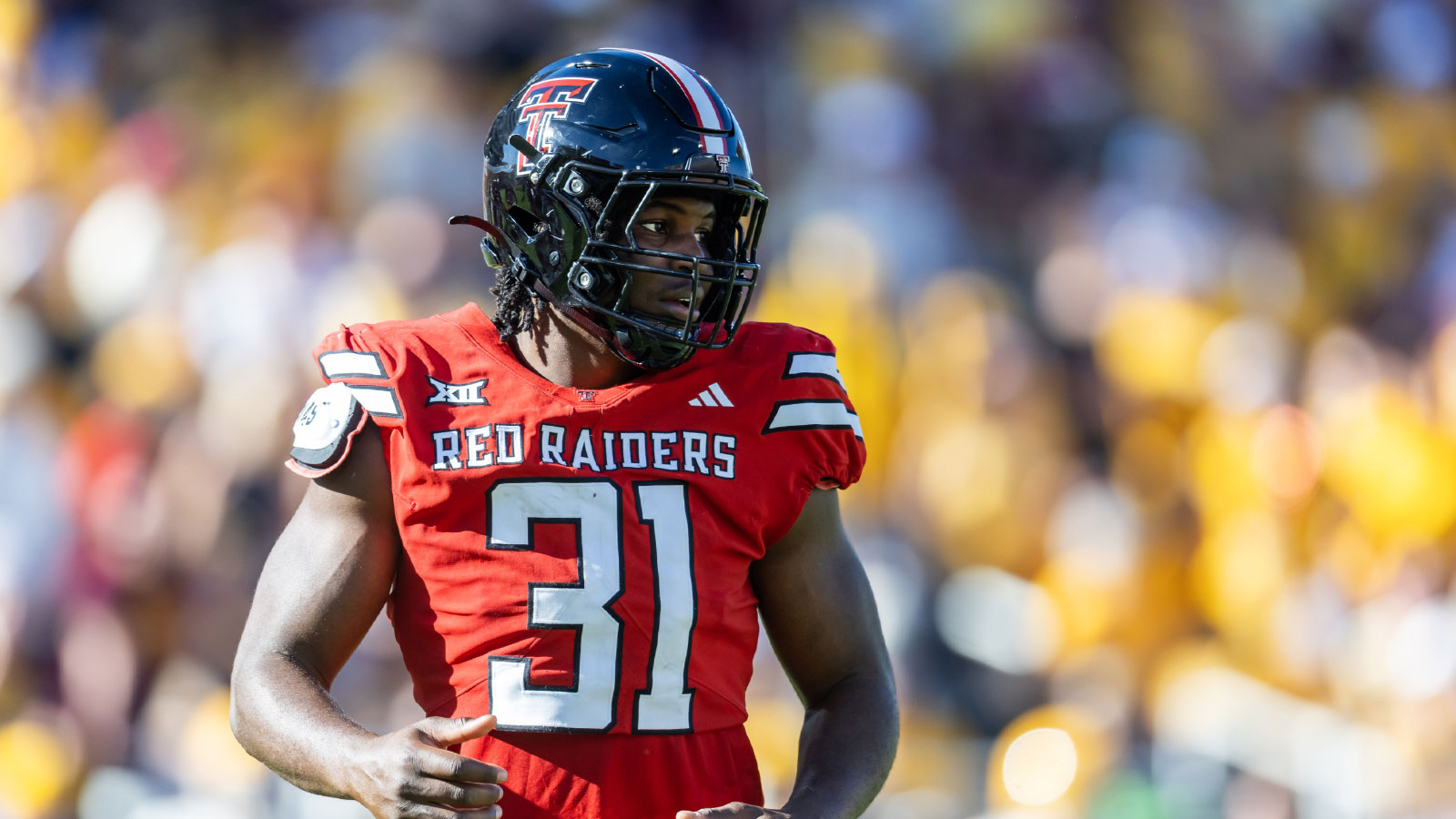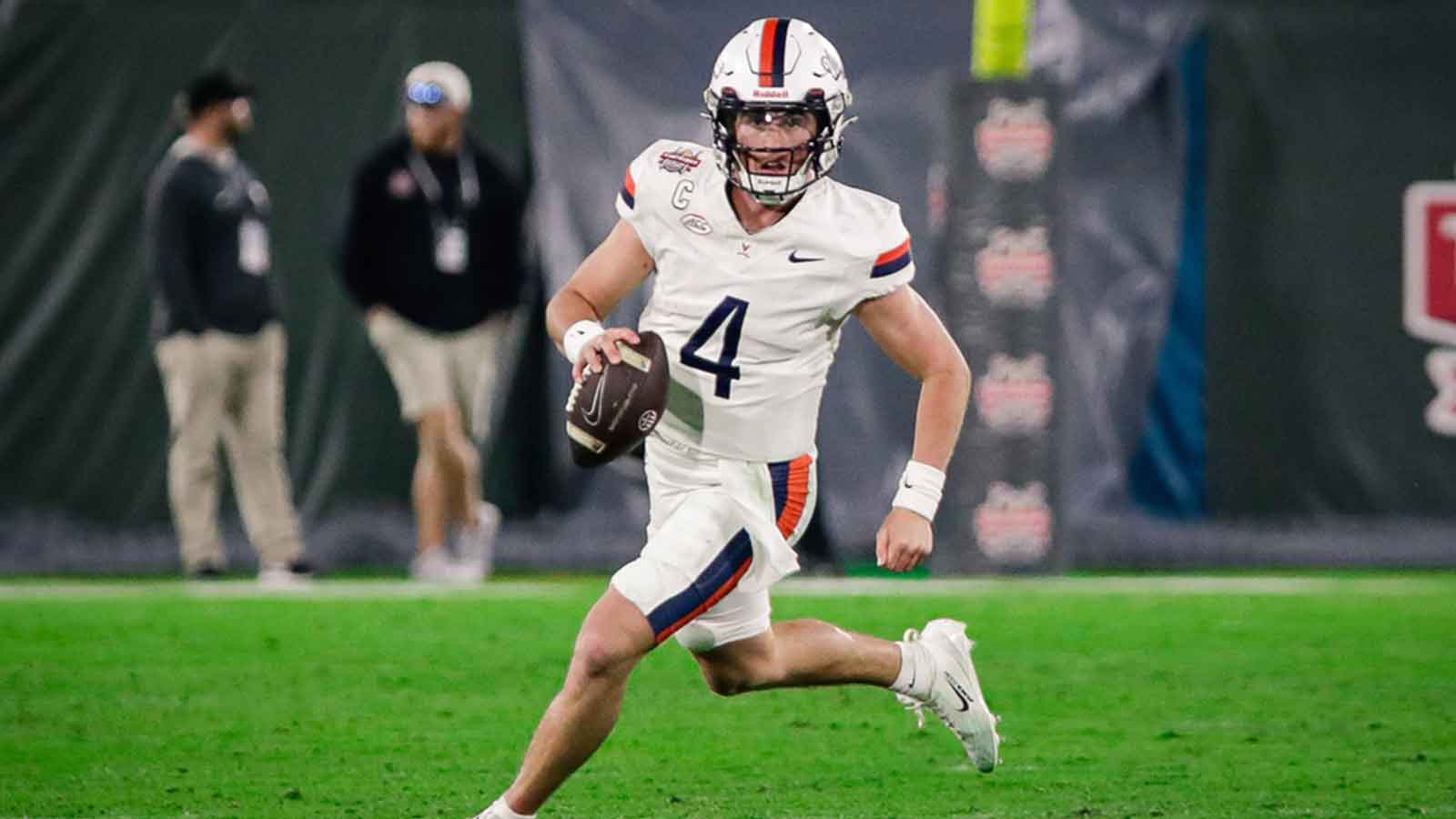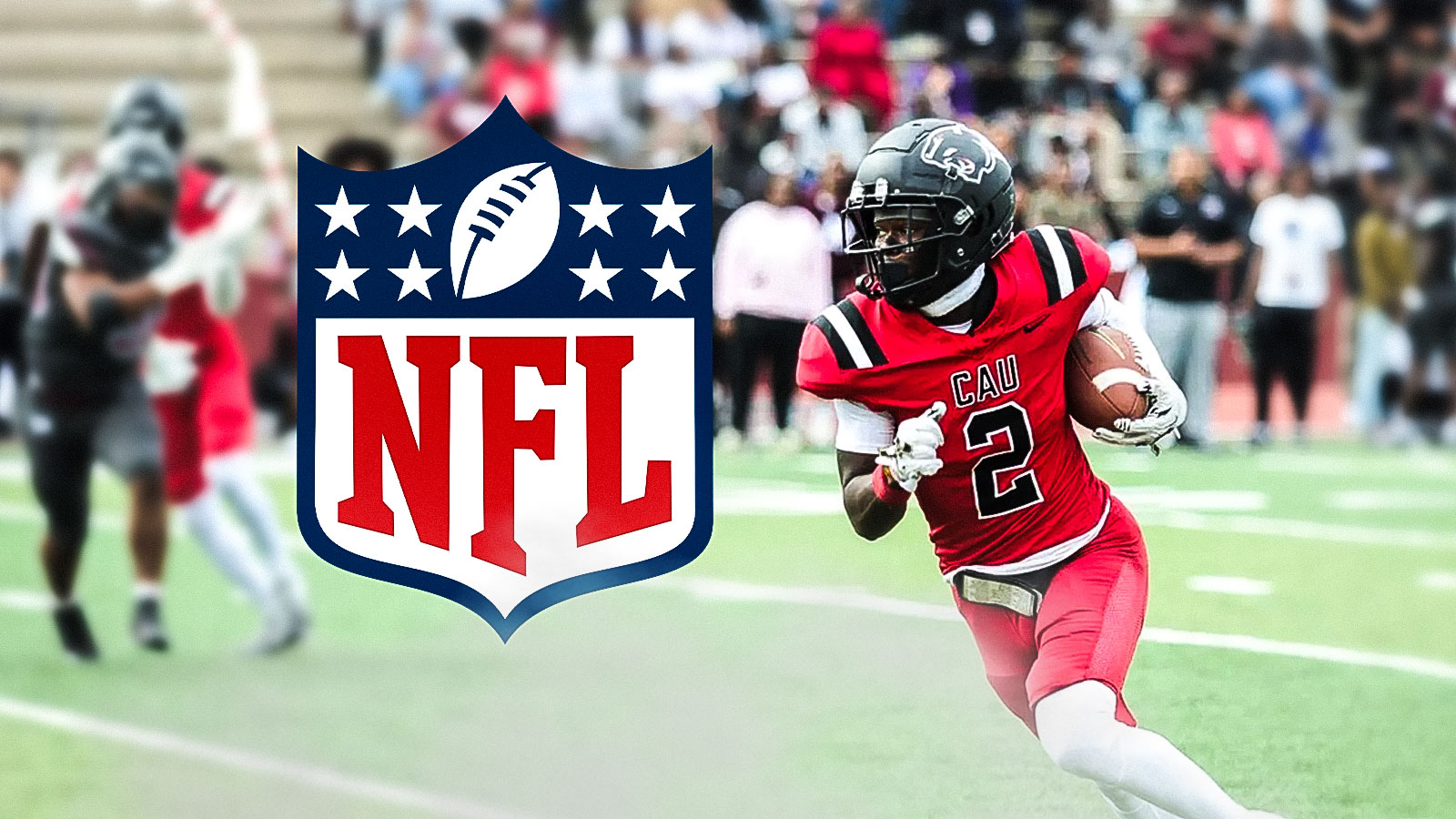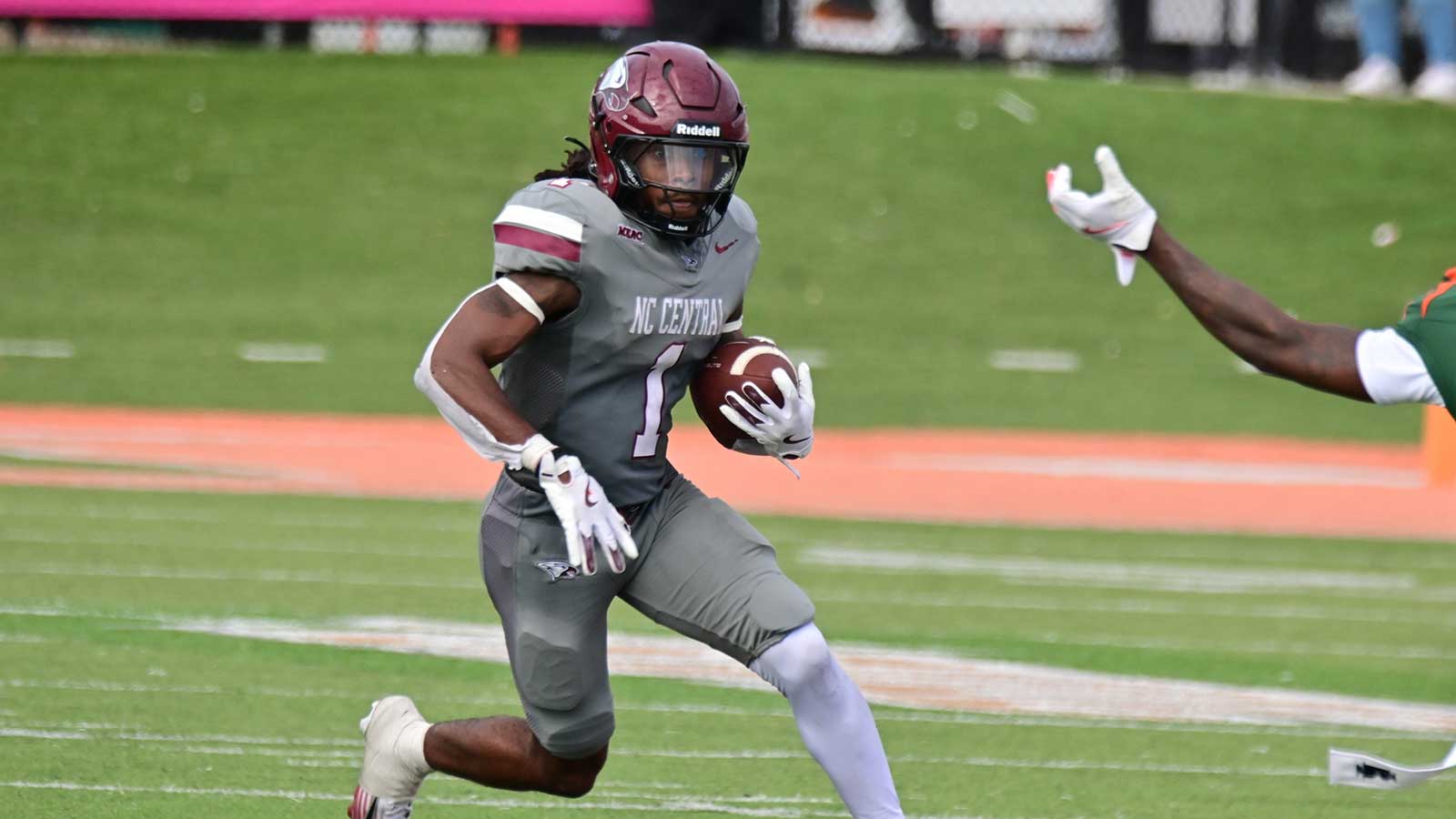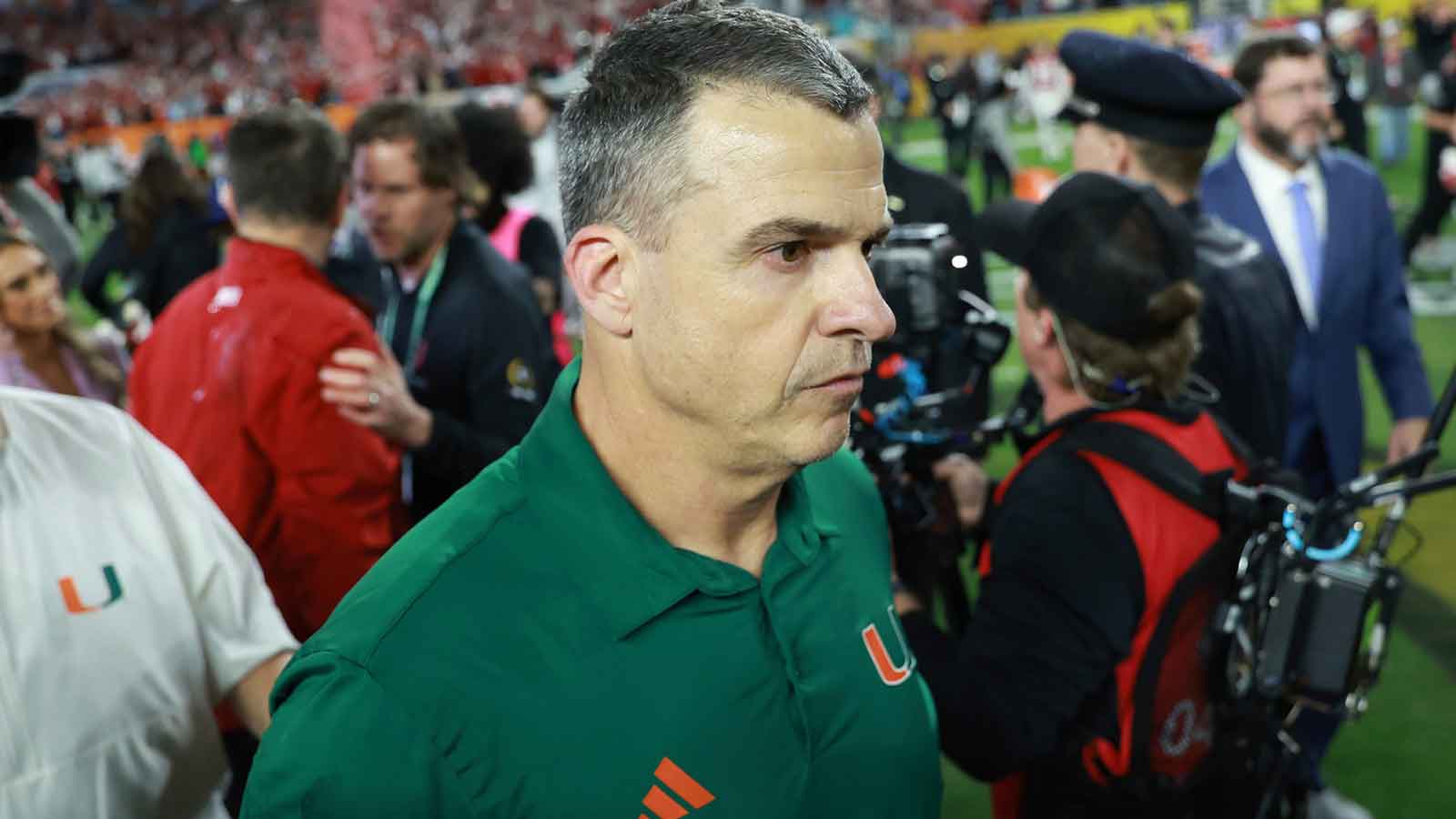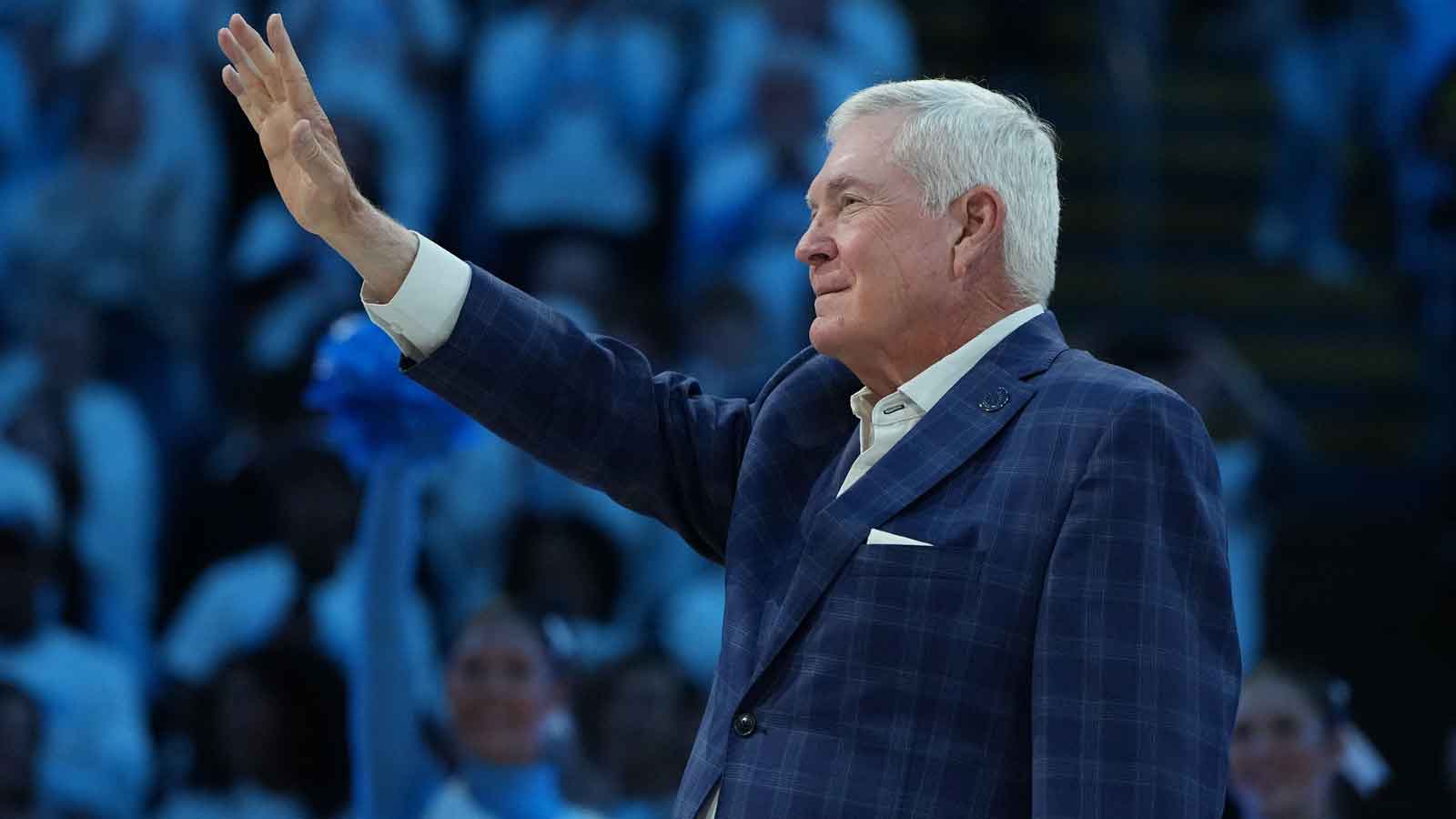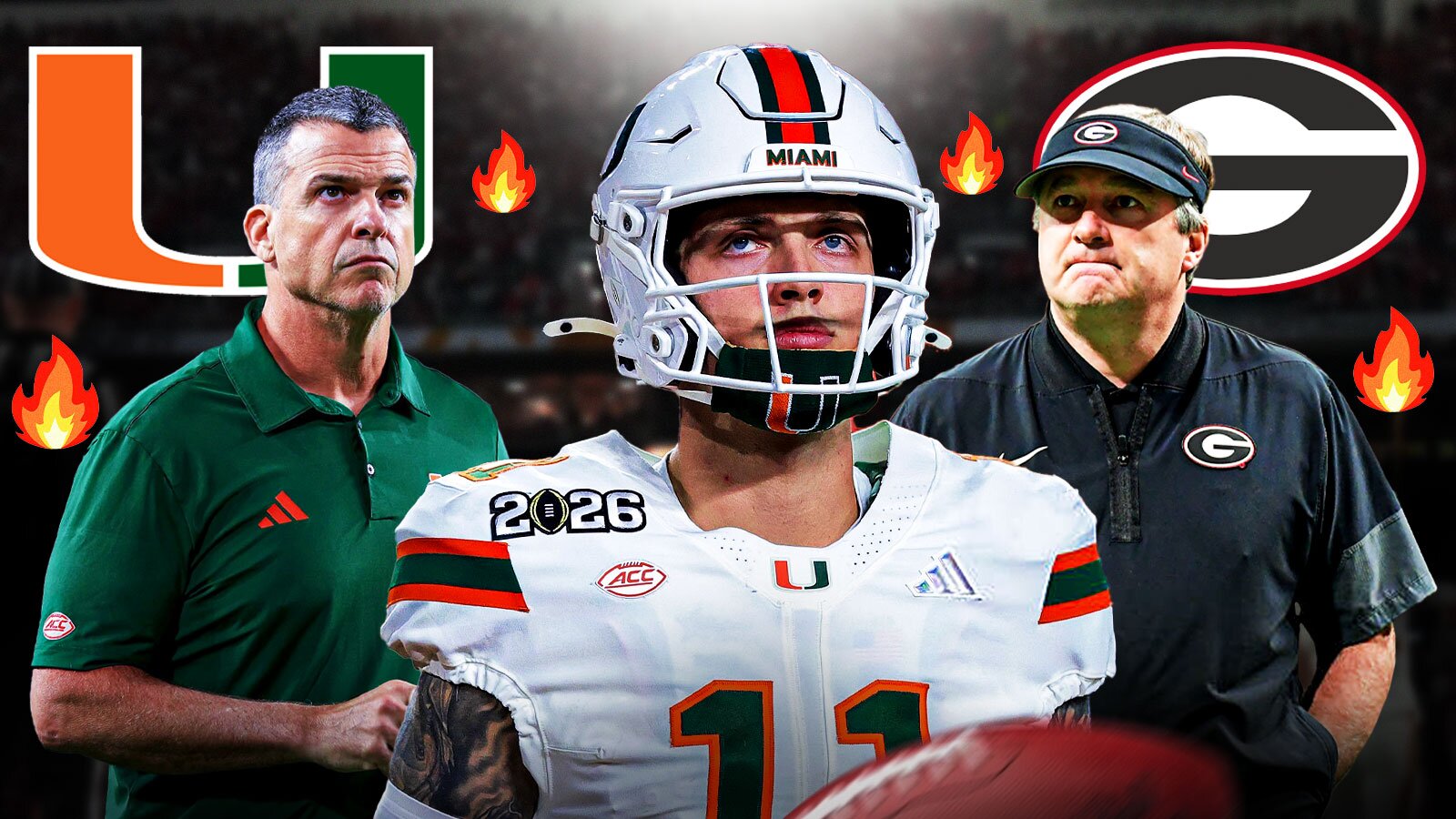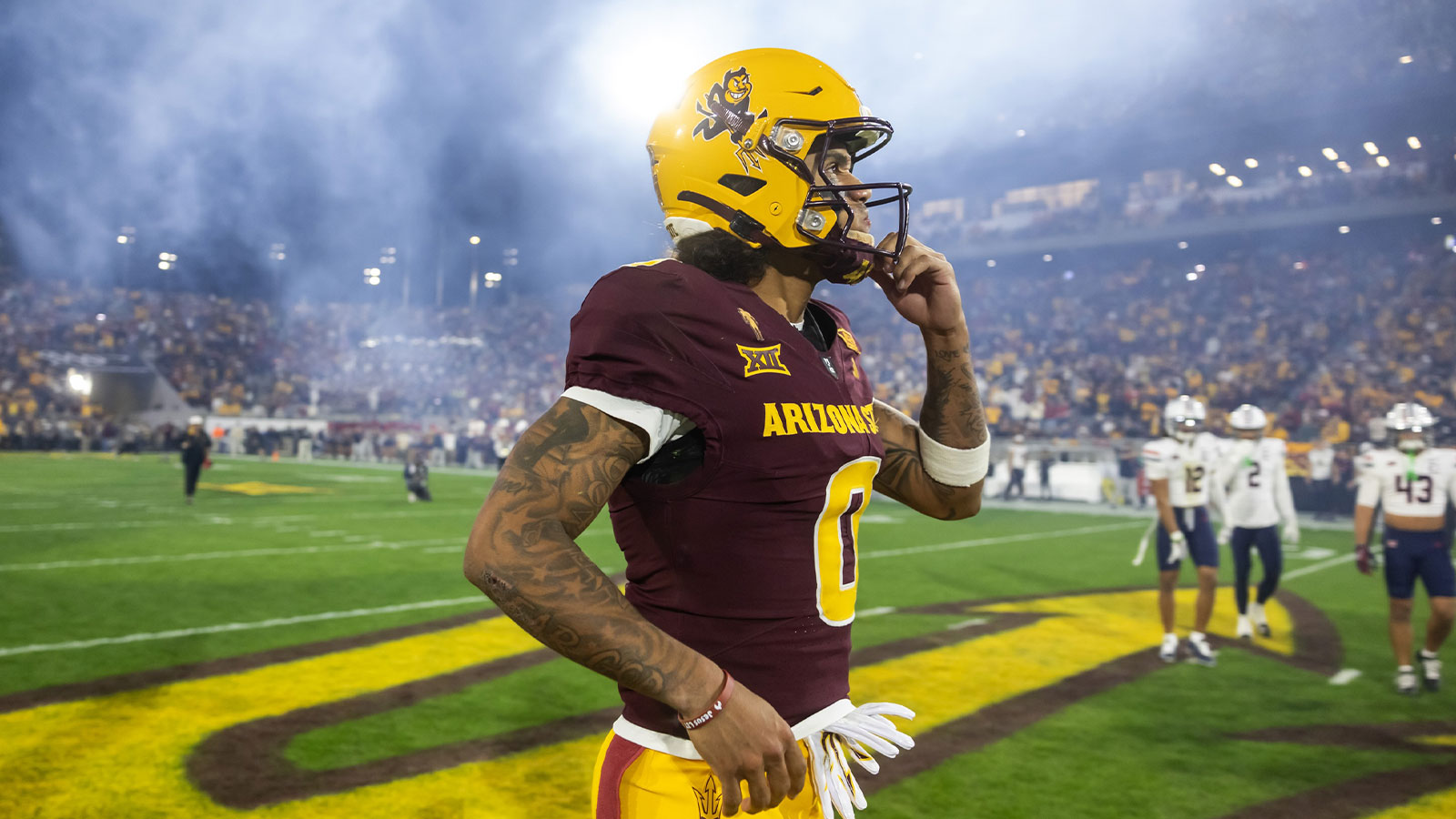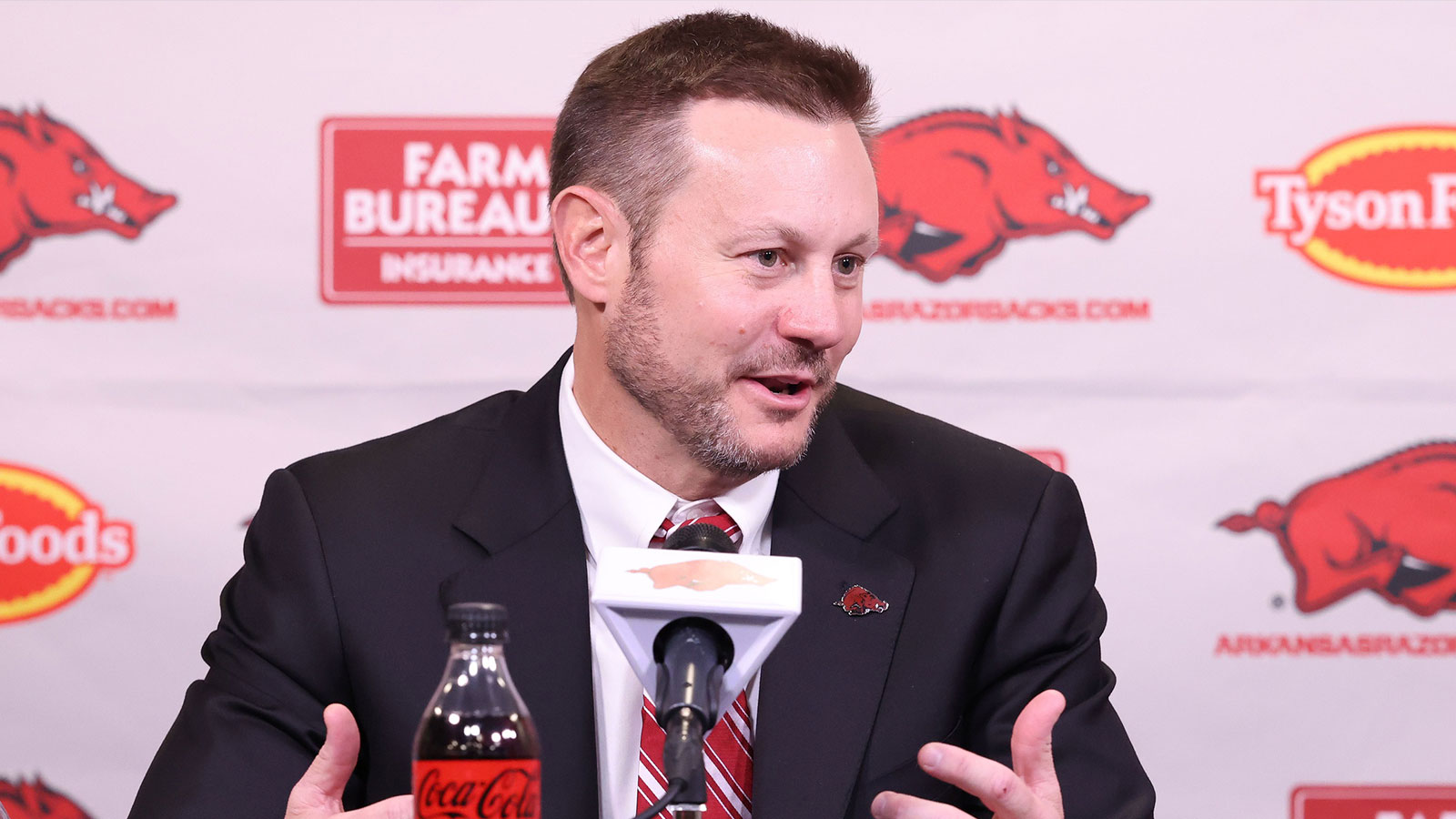USC football entered Friday night's Pac-12 Championship Game just needing to win to punch a ticket to the College Football Playoff. The Trojans were riding back-to-back wins over rivals UCLA and Notre Dame, and had won five straight games to finish the season 11-1. It seemed like fate that the Trojans would win and assert themselves on the national stage once again.
Unfortunately for the Trojans, they ran into their nemesis in Utah again. The Utes handed the Trojans their lone loss of the season in a 43-42 thriller in Salt Lake City on Oct. 15. This time, the game wasn't even close.
Utah laid the beatdown on USC football in a 47-24 blowout on Friday night. The Trojans started out well by jumping out to a 17-3 lead early in the second quarter, but that lead quickly evaporated. The Utes outscored the Trojans 44-7 the rest of the way, and most of their points came on long touchdowns.
Caleb Williams, the heavy Heisman favorite entering the game, played well, but injuries clearly limited him. However, the Trojans defense, which had been shaky all season, was atrocious on Friday night. They not only conceded over 500 yards of offense, but also missed several key tackles on game-changing plays.
Regardless, USC's playoff hopes ended with this loss. The Trojans can still make the season a success by winning a New Year's Six bowl, but missing out on a national title is a massive disappointment.
Without further ado, let's go over who was most to blame for USC's devastating loss to Utah.
3. Austin Jones
Since USC football star running back Travis Dye suffered a season-ending injury in mid-November, Austin Jones has filled in admirably. He had a very strong performance with 120 yards and two touchdowns against UCLA, his first game as a full-time starter, then followed it up with a 154-yard performance against Notre Dame. The strong running game helped USC run a more balanced offense and take the pressure off of Williams and the passing game.
On Friday night, though, Jones and the running game disappeared in the biggest game. The senior running back had 15 carries but just 35 yards for an average of 2.3 yards per carry. The only other Trojan to rush was Williams, who finished with 12 carries for 21 yards despite having a 59-yard run.
The lack of a running game made USC's offense one-dimensional, which is a difficult situation for any team. Williams' lingering injury only compounded the issue, and despite some amazing plays, he couldn't carry the team. Offense was far from USC's issue, but Jones and the run game certainly did not help matters.
2. The offensive line
The Trojans' running game may have been subpar on Friday, but it's not entirely the fault of the rushers. Football is won and lost in the trenches, and USC football lost in the trenches soundly on Friday night. The defense only notched one sack and allowed 224 rushing yards, but the offensive side was much worse.
USC's offensive line not only contributed to the poor running game, but also hampered the passing game. The Trojans allowed Williams to take a season-high seven sacks when his previous high was four. Williams' took far too many hits on Friday night, and it not only caused his injury, but continually made it worse.
Caleb Williams does not look right…injuries suck. pic.twitter.com/9bIAowQ65l
— Barstool Sports (@barstoolsports) December 3, 2022
As talented as USC's offense is, no offense can win without time or effective blocking. The Trojans' offensive line not only cost them a trip to the playoff but possibly cost Williams the Heisman as well.
1. Alex Grinch and Lincoln Riley
USC football defensive coordinator Alex Grinch and head coach Lincoln Riley share the most blame for this loss because their struggles go hand-in-hand. Grinch's struggles don't happen without Riley's, and vice versa.
For Grinch, his defense was nothing short of awful on Friday night. USC's defense had been suspect all-season, but Utah flat-out exposed the entire unit when it mattered most. Besides the insane yardage and point the Utes put up, the Trojans also missed many key tackles, which brought back memories of Grinch's defenses at Oklahoma in prior years.
God bless Alex Grinch. pic.twitter.com/Gh3TmkekPm
— kevin harrish (@Kevinish) December 3, 2022
Then for Riley, he failed to adapt when Utah started to figure out his gameplay. Instead of changing the offensive game plan, he just kept doing the same thing over and over. Shockingly, that didn't work out well and the offense eventually collapsed too.
This has to be the most Lincoln Riley stat I’ve ever seen pic.twitter.com/EiQ1AdHWod
— Boomer Beamer (@ImDerBatman) December 3, 2022
It's difficult to say which coach is more at fault. On one hand, Grinch's poor defense put pressure on the offense to score on every possession. On the other hand, Riley's offense sputtering only exacerbated an already terrible situation for the defense.
Both coaches have the talent and potential to lead USC football to a national championship. However, they aren't there yet, and Friday's game showed they have a lot to work on.




